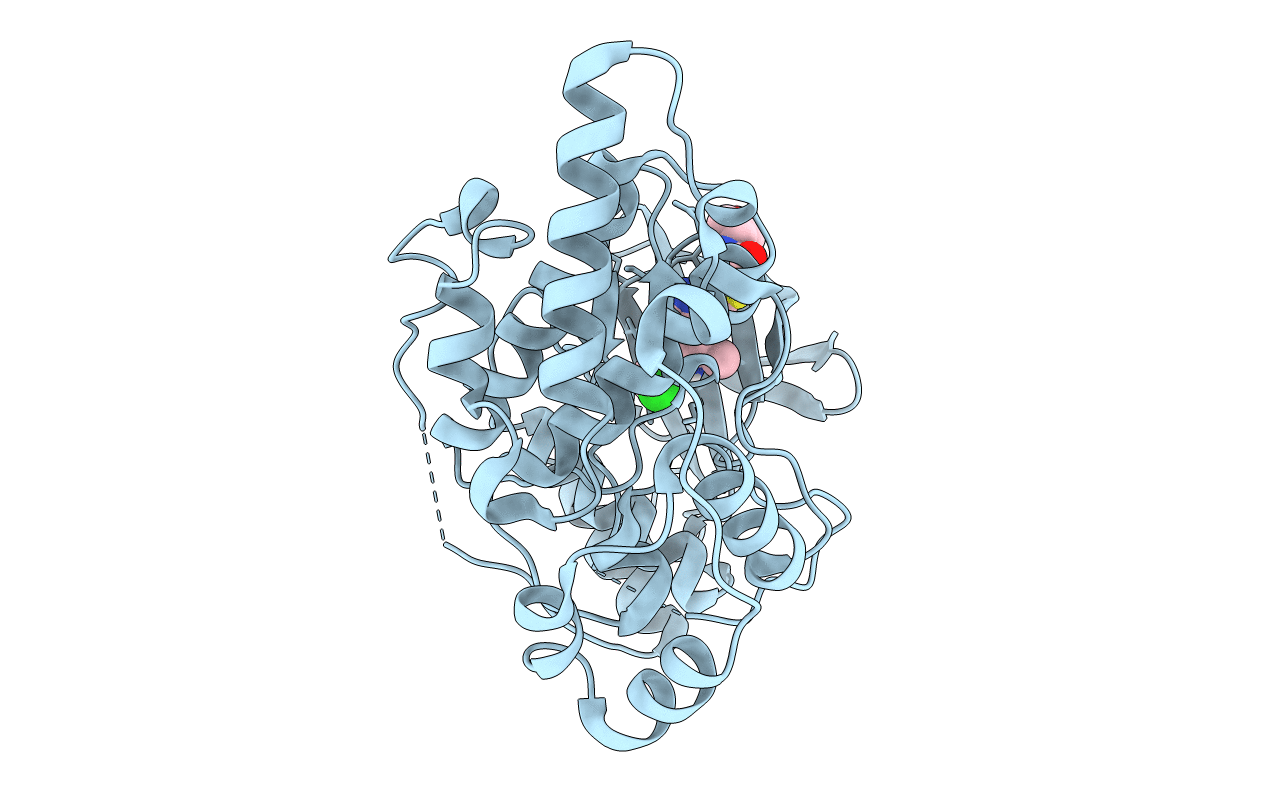
Deposition Date
2021-09-02
Release Date
2021-11-03
Last Version Date
2023-10-18
Entry Detail
PDB ID:
7S1N
Keywords:
Title:
N-Aromatic-Substituted Indazole Derivatives as Brain Penetrant and Orally Bioavailable JNK3 Inhibitors
Biological Source:
Source Organism(s):
Homo sapiens (Taxon ID: 9606)
Expression System(s):
Method Details:
Experimental Method:
Resolution:
2.11 Å
R-Value Free:
0.26
R-Value Work:
0.22
R-Value Observed:
0.22
Space Group:
P 21 21 21


